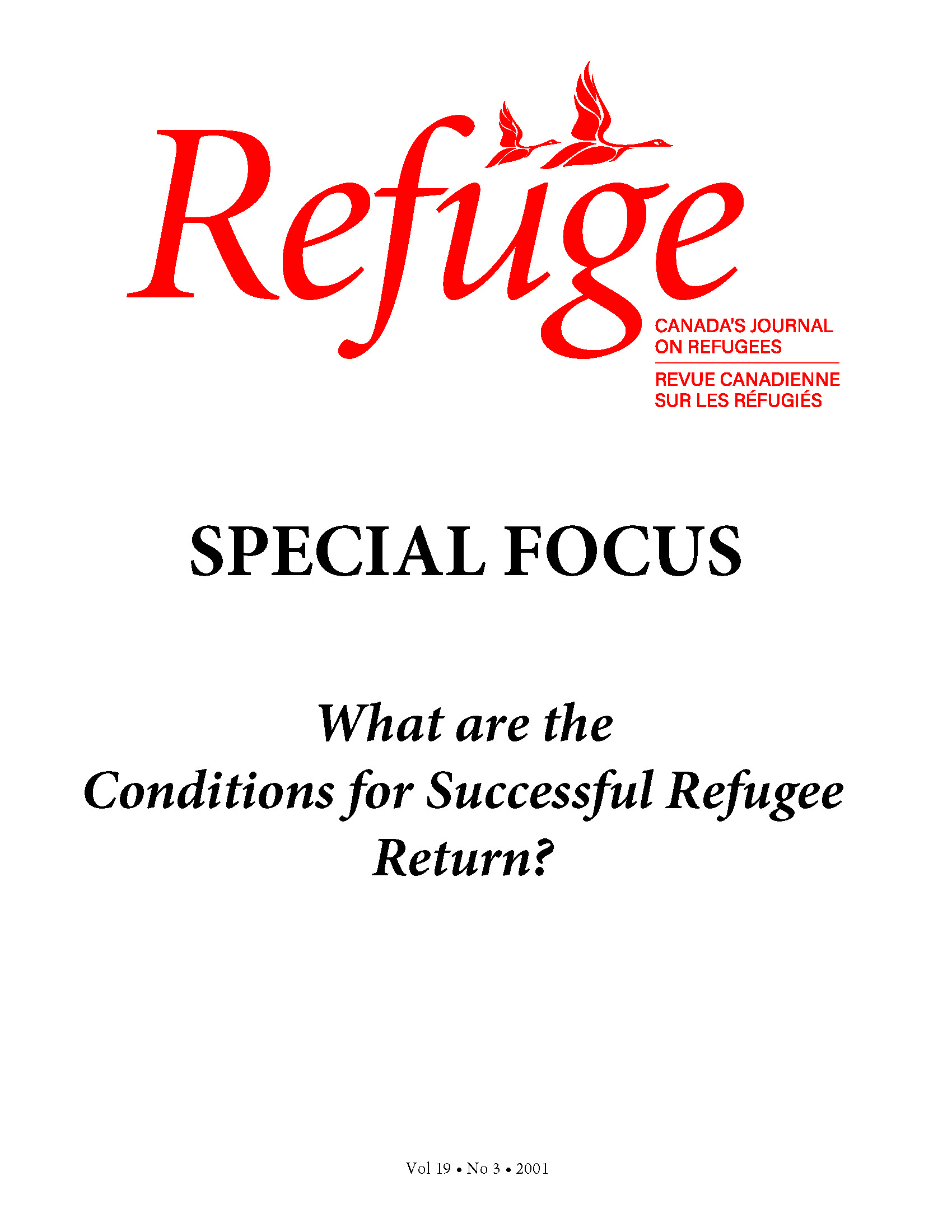Refugees and Collective Action: A Case Study of the Association of Dispersed Guatemalan Refugees
DOI:
https://doi.org/10.25071/1920-7336.21201Keywords:
Guatemala, ARDIGUA, self-settled refugees, return, refugee-led organizations, collective mobilization, social movementsAbstract
The paper traces the organizational development of the Association of Dispersed Guatemalan Refugees (ARDIGUA), a grassroots, self-settled Guatemalan refugee organization, in an attempt to understand the dynamics of popular mobilization in exile. It examines the challenges faced by the more vulnerable and institutionally marginalized self-settled refugees in their efforts to secure rights as refugees and as returning Guatemalans. It argues that the collective mobilization of self-settled refugees was facilitated by political opportunities external to ARDIGUA, as well as by resources—material and discursive—that the association mobilized. The paper draws attention to the role that self-settled refugees can play as political actors in the wider process of peace and democratization, and argues that the impact of their efforts is significant (beyond their immediate material success) to the extent to which they articulate their traditionally marginalized concerns in politically and institutionally consequential forums. In this way, they contribute to the expansion and democratization of public discourse, and help to widen spaces in which the excluded can actively engage as social and political actors.
Metrics
Downloads
Published
How to Cite
Issue
Section
License
Copyright (c) 2001 Galit Wolfensohn

This work is licensed under a Creative Commons Attribution-NonCommercial 4.0 International License.
Refuge authors retain the copyright over their work, and license it to the general public under the Creative Commons Attribution-Non Commercial License International (CC BY-NC 4.0). This license allows for non-commercial use, reproduction and adaption of the material in any medium or format, with proper attribution. For general information on Creative Commons licences, visit the Creative Commons site. For the CC BY-NC 4.0 license, review the human readable summary.







